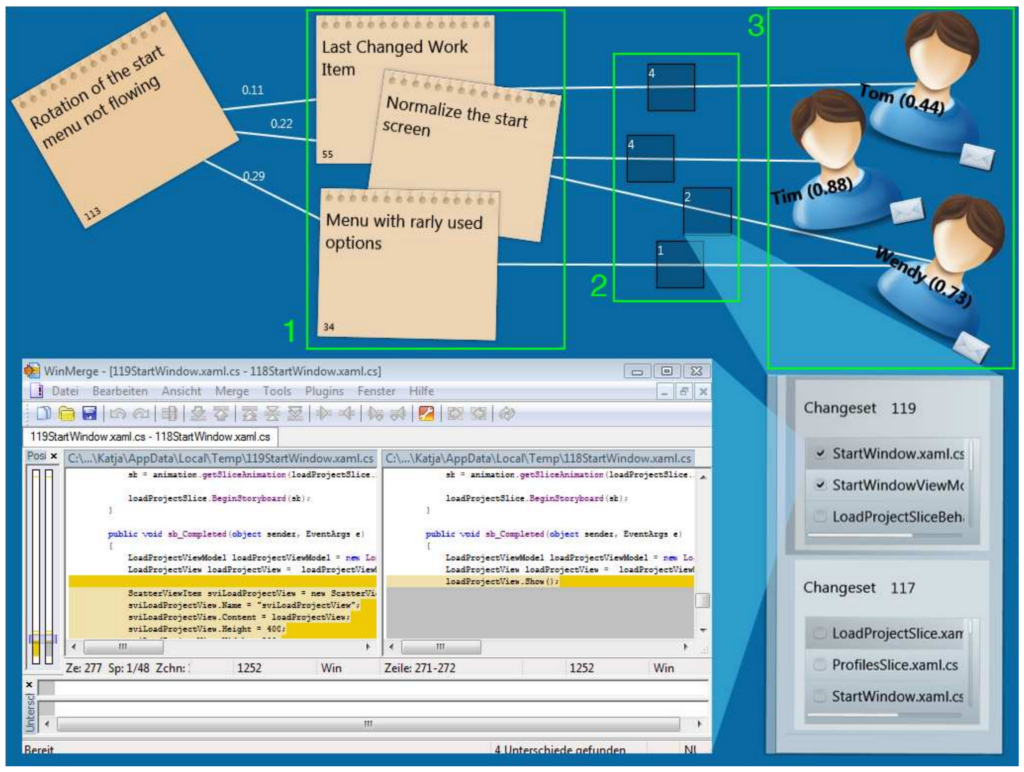Collaborative Bug Triaging using Textual Similarities and Change Set Analysis
Authors: K. Kevic, S. Müller, T. Fritz, H. C. Gall
Abstract: Bug triaging assigns a bug report, which is also known as a work item, an issue, a task or simply a bug, to the most appropriate software developer for fixing or implementing it. However, this task is tedious, time-consuming and error-prone if not supported by effective means. Current techniques either use information retrieval and machine learning to find the most similar bugs already fixed and recommend expert developers, or they analyze change information stemming from source code to propose expert bug solvers. Neither technique combines textual similarity with change set analysis and thereby exploits the potential of the interlinking between bug reports and change sets. In this paper, we present our approach to identify potential experts by identifying similar bug reports and analyzing the associated change sets. Studies have shown that effective bug triaging is done collaboratively in a meeting, as it requires the coordination of multiple individuals, the understanding of the project context and the understanding of the specific work practices. Therefore, we implemented our approach on a multi-touch table to allow multiple stakeholders to interact simultaneously inthe bug triaging and to foster their collaboration. In the current stage of our experiments we have experienced that the expert recommendations are more specific and useful when the rationale behind the expert selection is also presented to the users.

